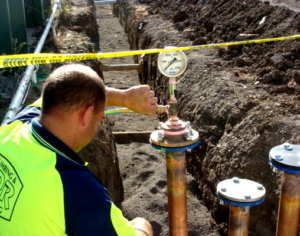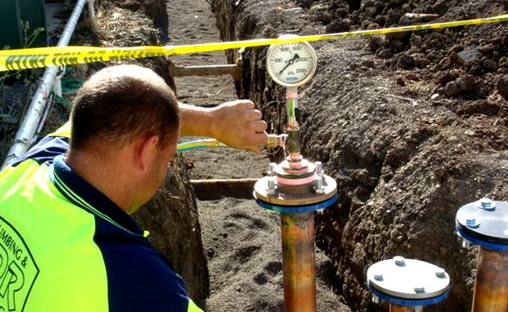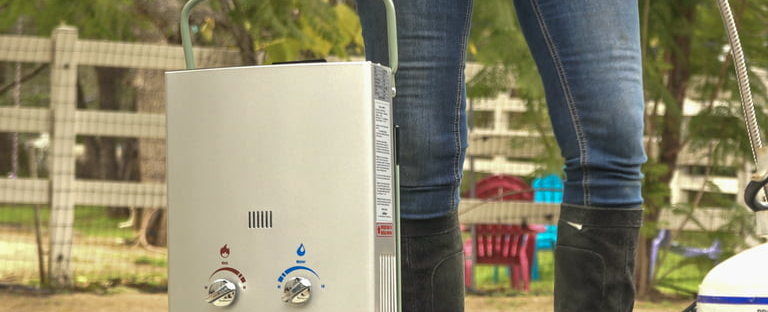Industrial plumbers do almost everything residential plumbers do – but on a much larger scale. O Hara Plumbing keeps toilets flushing in office buildings and shopping malls and water flowing at the factory.
They also help businesses comply with regulations and standards while ensuring efficient operations and sustainable business practices. Keeping up with technological advances helps them optimize their services.

The water supply in an industrial plumbing system is a crucial element that helps ensure the efficiency of the entire facility. The water may be used as raw material or for process purposes, and it must meet the requirements of the respective industry. Industrial water supply systems often include large storage tanks and pumps that can deliver the required volume of water at high pressures. Water treatment facilities, backflow prevention devices, and drainage systems can also complement this system.
The piping systems in an industrial building must be able to carry fluids at certain temperatures and under high levels of pressure, and they must also be designed to resist corrosion. In addition, the piping must be able to withstand vibrations and shocks. This type of piping is usually installed with protective coatings and can be made from stainless steel, fiberglass, or PVC. In addition, the pipes must be properly insulated to prevent freezing in cold climates.
As you can imagine, the water usage in an industrial setting is far higher than in a residential property. This means that the plumbing fixtures and piping are going to experience a lot more wear and tear. As such, they need to be of a much higher quality and can be more expensive.
In addition, the piping systems must be configured to allow for easy maintenance and alterations. This is because the pipes are typically exposed in an industrial setting, unlike in residential properties, where they are hidden behind walls and other structures. Additionally, the pipe sizes are generally larger on industrial projects because the system must be able to handle high volumes of water flow.
Industrial water supply systems are a vital aspect of many industries, and it’s important that they be well-maintained to avoid any interruptions in production. In addition to ensuring that water is available when needed, these systems can help reduce costs by optimizing water use. This can be done through a variety of strategies, including using water-efficient fixtures, implementing cooling systems that minimize water consumption, and encouraging employees to use less water.
Plumbing systems are complex mazes of pipes, tanks, fixtures, and more that are responsible for delivering water to a property and carrying away waste. While residential plumbing is subject to strict code requirements, industrial setups have much higher usage and require specialized maintenance to keep functioning.
An efficient plumbing system should provide a constant supply of clean water and remove sewage in a hygienic way. Regular industrial plumbing maintenance can catch small problems before they worsen and help save money on energy bills. Here are some of the main ways an industrial plumbing system differs from a regular one:
A commercial or industrial property’s sewage system is designed to handle two types of wastewater: blackwater and greywater. Blackwater contains harmful pathogens and must be transported to a sewage treatment plant or municipal sewage system for proper disposal. Greywater, on the other hand, is made up of discharge from appliances like sinks, toilets, and washing machines that do not contain any dangerous substances.
It is important that a plumbing system be properly sized so that it can carry the amount of wastewater that needs to be carried away on a daily basis. This is done by ensuring that all drainage pipe sizes and lengths meet the requirements set by the code. Proper sizing prevents clogs, facilitating the smooth flow of water. It is also necessary to ensure that the pipes have the correct slope and gradient to facilitate draining without causing water pooling or a negative pressure build-up.
The piping in an industrial plumbing system is typically made of durable materials that can withstand high-pressure conditions and certain temperatures. This is because the piping is required to transport fluids that may be subjected to intense heat and pressure during operation. It is also important that the pipes are able to withstand corrosion and erosion.
The plumbing system in an industrial building is also required to have a trap to prevent sewer gas from entering the water supply. The trap must be of a minimum size as specified by the Uniform Plumbing Code (UPC). The system should also be fitted with a vent to allow air to escape and prevent negative pressure.
Unlike residential plumbing, industrial plumbing involves the installation of pipes that are designed to hold large amounts of pressure and handle different temperatures. As such, it must comply with strict safety codes and regulations in order to keep commercial spaces safe and functional. This includes obtaining permits, adhering to specific installation guidelines, and conducting regular assessments and inspections.
An important aspect of any plumbing system is ventilation. This ensures that water and sewage can flow properly to and from all fixtures without building up pressure. It also prevents foul odors from developing and keeps harmful gases from accumulating inside the pipes. In some cases, it may be necessary to install a dedicated venting system, which is separate from the drainage system.
The ventilation system is usually a network of pipes that run from the drains to the roof. These are called ducts or vent stacks. They are usually positioned at a height that is far enough away from the building to avoid any direct contact with air conditioning vents or windows. It is crucial to include the vent piping in the design of any building early on to ensure that it will function well in the future.
Ventilation systems are often used in manufacturing plants, hospitals, and other types of buildings. They can help to improve employee health and productivity by reducing the risk of respiratory problems from inhaling hazardous chemicals or materials. In addition, ventilation systems can help to minimize the amount of dust, ash, or particulate matter that enters the working environment.
The key to understanding how plumbing ventilation systems work is knowing their limitations and the potential risks they pose. This will help you to identify any issues before they become serious and minimize the impact on your building’s occupants. To learn more about the ins and outs of these vital systems, enroll in a professional plumbing ventilation course. This hands-on training will teach you how to calculate ventilation requirements, select the right components and ensure optimal airflow rates. It will also help you to master the skills required to identify and troubleshoot potential issues.
Besides water, industrial plumbing deals with the transfer of gas and other liquids. This involves constructing pipe networks that can handle high temperatures and pressures. It also ensures the safe and secure transfer of these fluids to their destination. For example, in a nuclear power plant, plumbing facilitates the assembly and installation of boiler equipment as well as cooling networks.
Professional industrial plumbers have the qualifications, training, and experience to deliver high-quality services to a wide variety of commercial spaces. They are familiar with the complexities of plumbing systems and have extensive knowledge of the various materials used in their construction. They can also troubleshoot issues and offer solutions that optimize the performance of these systems.
The most common services offered by industrial plumbers include installing and repairing pipes, using fittings to build fixtures such as showers and sinks, and ensuring that gas lines are properly vented. They may also perform specialized tasks such as cutting and threading. These processes involve shearing or sawing sections of pipes to adjust their size and shape. Additionally, they can help in preventing water damage by detecting leaks and conducting regular inspections.
Like all systems, industrial plumbing needs to be maintained in order to function correctly. It is important to note that proper maintenance can save businesses from costly repairs and operational disruptions. This is achieved by carrying out routine inspections, identifying and promptly addressing any issues that may arise, implementing preventive maintenance strategies, and ensuring the safe handling of hazardous substances.
It is essential to maintain your industrial plumbing system and stay updated with the latest advancements in the industry. This will allow you to take advantage of the numerous benefits that these innovations can provide, including increased efficiency, reduced energy consumption, and improved sustainability. These benefits can be realized through the implementation of energy-efficient fixtures, upgrading outdated pipes to more durable materials, and deploying smart water monitoring systems.
An effective plumbing system is the foundation of any facility, whether it’s a retail shop or a manufacturing plant. An experienced industrial plumber is a valuable asset to any company that depends on the efficient operation of these facilities.


